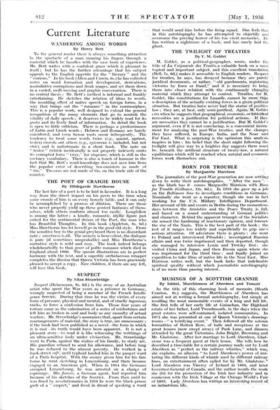M. Goblet, as a political-geographer, wrote, under the title of
La Crepus'cule des Traites, a valuable book on a most topical and important subject, and this excellent translation (Bell, 7s. 6d.) makes it accessible to English readers. Respect for treaties, he says, has decayed because they- are purely juridical documents, or rather, " old parchments,-registering victories by force or &and," and it is necessary to bring them into closer relatitga with the continuously 'changing material which they attempt to control. Treatiet;:for 'M. Goblet, like constitutions. for Lassalle, cannot .betriorOltin a description of the actpally existing forces in a giyeti political situation. But treaties have never had the statni.otpositive law ; they are, at best, only'senii-jdridical. Goblet crrs when he suggests that geograPhical, economic; orbitnal4eal necessities are a justification for political actions.-=:If, they are necessities they cannot be a justification. But M. Goblet's argument, even if it is not convincing, is a convenient instru- ment for analysing the post-War treaties, and the changes they have suffered, in Europe, India, and the Near and Far East. What is surprising is the optimism this analysis inspires in him his belief that the short night following the twilight will give way to a brighter day suggests there must be, beneath the artificial structure of treaty-law, a natural equilibrium which will be reached when natural and economic -forces work themselves out. •














































 Previous page
Previous page